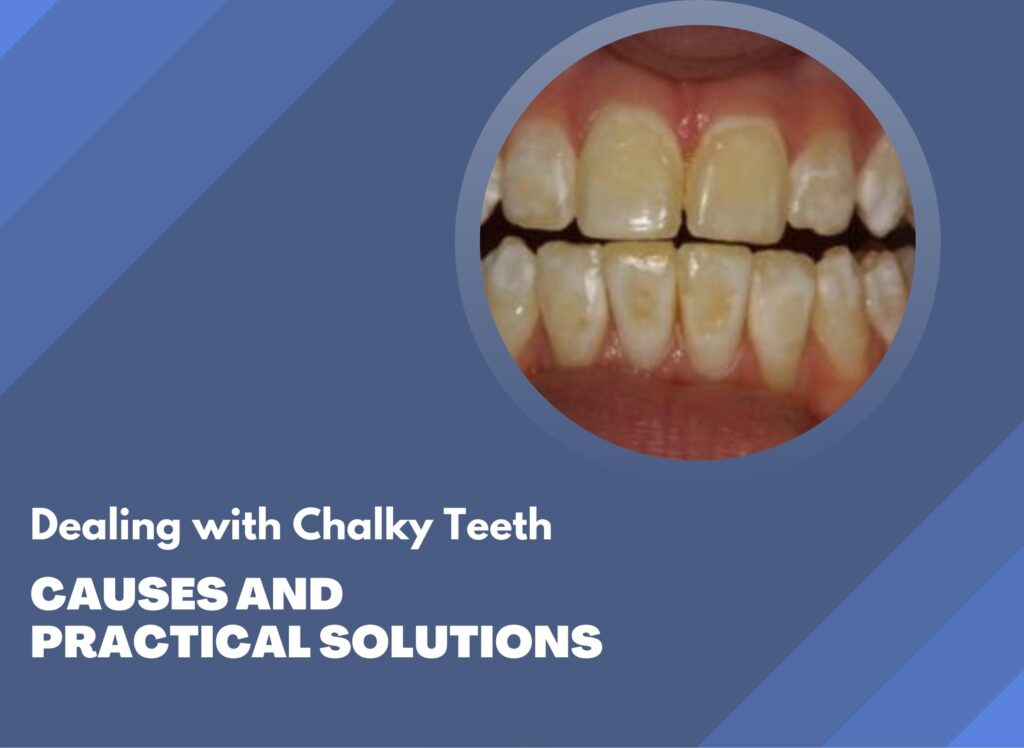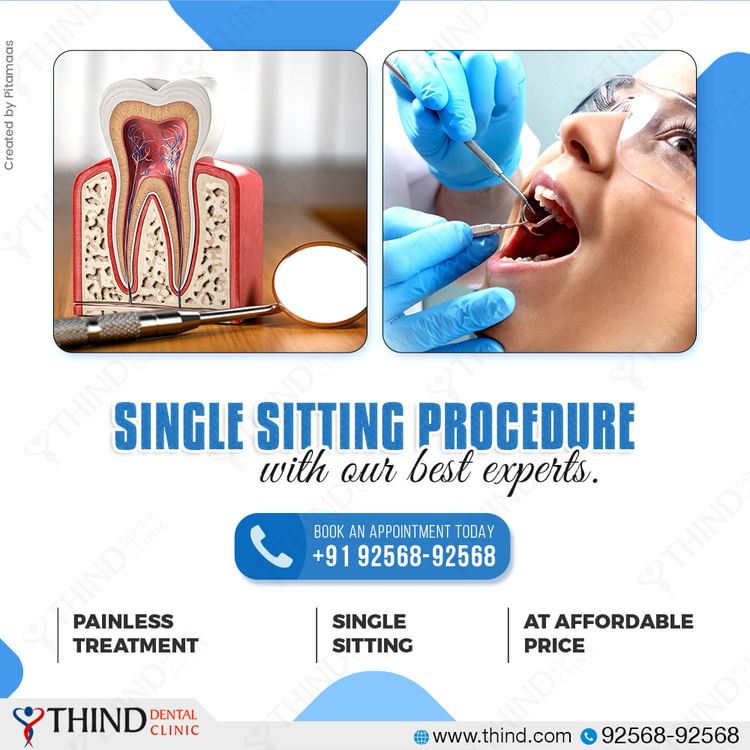Your smile is one of your most valuable assets, and the condition of your teeth plays a significant role in how confident you feel when you share it with the world. Unfortunately, not everyone enjoys naturally strong and pearly white teeth. Some individuals encounter a dental issue known as “chalky teeth,” which can affect both the appearance and health of their teeth. In this comprehensive guide, we’ll explore the causes behind chalky teeth and provide practical solutions to help you achieve a healthier, more vibrant smile. If you’re in Ludhiana, Thind Dental Clinic is here to support you on your dental journey.
Understanding Chalky Teeth
Chalky teeth, also known as enamel hypomineralization, are a dental condition characterized by the incomplete development of tooth enamel. Enamel is the protective outer layer of your teeth, and when it doesn’t form properly, it can lead to a range of dental problems.
The Causes of Chalky Teeth
1. Genetics: Genetics plays a significant role in the development of chalky teeth. If your parents or grandparents had chalky teeth, there’s a higher likelihood that you may inherit this condition. Genetic factors can influence how your enamel forms during tooth development.
2. Fluoride Intake: Fluoride is crucial for maintaining strong and healthy teeth. However, excessive fluoride exposure during tooth development can lead to chalky teeth. This condition is known as dental fluorosis. It can occur if children consume water with high fluoride levels, use dental products like toothpaste with excessive fluoride, or take fluoride supplements without proper guidance from a dentist.
3. Premature Birth or Low Birth Weight: Babies born prematurely or with low birth weight may be at an increased risk of developing chalky teeth. During the final stages of pregnancy, the formation of tooth enamel occurs. Premature birth or low birth weight can disrupt this critical phase, resulting in enamel defects.
4. Illness or Medications: Certain childhood illnesses and medications can interfere with the normal development of tooth enamel. For instance, antibiotics like tetracycline, when used during tooth development, can lead to enamel hypomineralization. Childhood illnesses that involve high fevers or infections may also affect enamel formation.
5. Vitamin D Deficiency: Vitamin D is essential for the absorption of calcium, a crucial component of tooth enamel. Insufficient levels of vitamin D during early childhood can impair enamel development, making teeth more prone to chalkiness and decay. Proper nutrition and exposure to sunlight are essential for maintaining adequate vitamin D levels.
Recognizing Chalky Teeth
Chalky teeth can manifest in various ways, and the severity of the condition can vary from person to person. Here are some common signs:
– White or yellowish spots: These spots often appear on the teeth, indicating areas of weakened enamel.
– Increased tooth sensitivity: Chalky teeth are usually more sensitive to temperature and touch, causing discomfort or pain.
– Tooth discoloration: Teeth may appear discolored, ranging from white and yellow to brown.
– Susceptibility to cavities: Enamel deterioration makes teeth more susceptible to cavities and decay.
Practical Solutions for Chalky Teeth
1. Professional Dental Assessment: The first step in addressing chalky teeth is to seek a professional dental assessment. Consult with a dental expert who can conduct a comprehensive evaluation. They will determine the severity of your condition and recommend suitable treatments.
2. Fluoride Treatments: Dentists often prescribe topical fluoride treatments, such as varnishes or gels. These treatments serve to strengthen enamel and reduce tooth sensitivity. By increasing the mineral density of the enamel, fluoride helps combat the porous nature of chalky teeth.
3. Dental Sealants: Dental sealants are protective coatings applied to the chewing surfaces of molars and premolars. These sealants create a physical barrier, guarding against bacteria and acid attacks. They are particularly beneficial for chalky teeth as they provide an extra layer of defense against enamel erosion and cavities.
4. Tooth Bonding: In cases where chalky teeth cause cosmetic concerns, tooth bonding can be an effective solution. This procedure involves the application of a tooth-colored resin to the affected teeth, effectively concealing imperfections. Bonding not only enhances the appearance of chalky teeth but also strengthens them.
5. Oral Hygiene: Maintaining a diligent oral hygiene routine is vital in managing chalky teeth. Regular brushing with fluoride toothpaste, flossing to remove food particles and plaque, and using an antiseptic mouthwash can help keep teeth clean and reduce the risk of cavities.
6. Dietary Adjustments: Make dietary changes to minimize the risk of cavities and further enamel deterioration. Reduce consumption of sugary and acidic foods and beverages, as these can contribute to tooth decay. Opt for a balanced diet rich in calcium and vitamin D to promote strong enamel.
7. Customized Care Plan: Work closely with your dentist to develop a personalized care plan tailored to your specific needs. They can guide effective oral hygiene practices, recommend suitable dental products, and schedule regular check-ups to monitor your progress.
Conclusion
Dealing with chalky teeth can be challenging, but with the right knowledge and professional guidance, you can achieve a healthier, more confident smile. At Thind Dental Clinic in Ludhiana, we specialize in diagnosing and treating various dental conditions, including chalky teeth. Our team of experienced dental professionals is dedicated to helping you maintain optimal oral health and regain your smile’s radiance. Don’t let chalky teeth hold you back – contact us today to schedule a consultation and take the first step towards a brighter, healthier smile.
For additional information or to arrange an appointment with us
You can contact us at +91-92568-92568
or visit us at:
THIND DENTAL CLINIC
11-12-13-14 H.I.G Market, Opposite Water Tank, Ludhiana, Punjab 141010.
Also Read:
Single Sitting Procedure: Painless and Affordable Dental Care at Thind Dental Clinic
Dental Care for Children: Expert Tips for Parents on Caring for Your Child’s Teeth
The Importance and Benefits of Regular Dental Checkups: Ensuring Optimal Oral Health
Professional Dental Implants: Restoring Smiles with Precision and Care at Thind Dental Clinic in Ludhiana

 Timings
Timings


